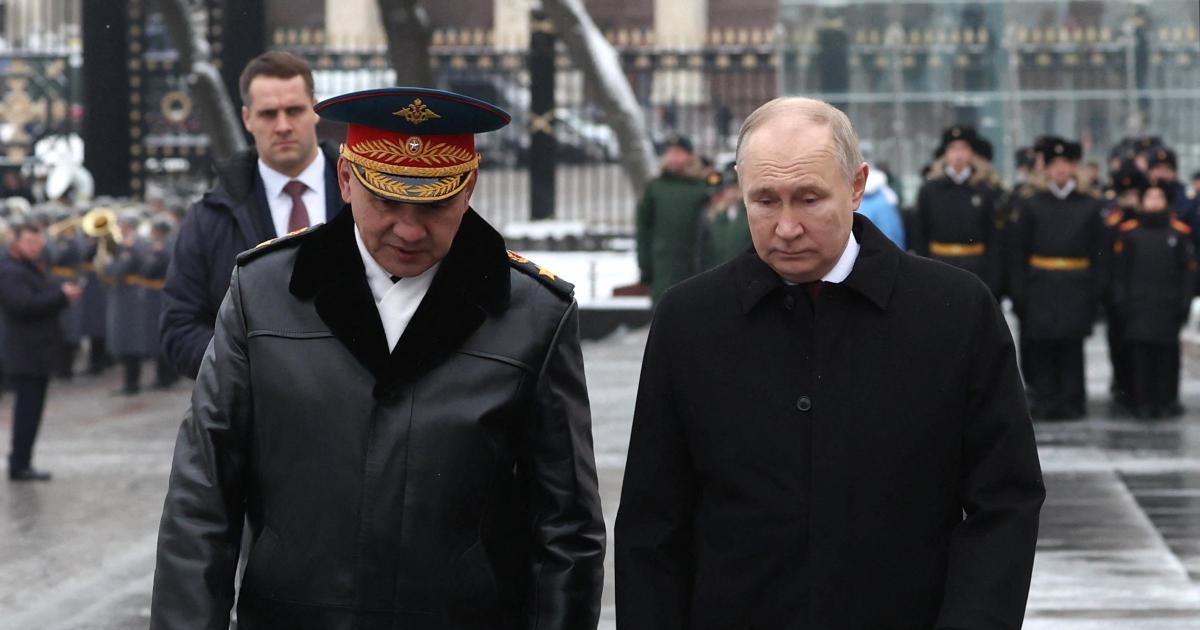Washington — The Biden administration announced more than 500 sanctions on Russia and its military industry Friday — the largest round of sanctions since Russia invaded Ukraine two years ago — as it tries to exert more pressure on Russian President Vladimir Putin over the invasion and the sudden death a week ago of Russian opposition leader Alexey Navalny.
Friday’s sanctions target top Russian companies, including Mechel, the leading manufacturer of specialty steel used in Russia’s attack helicopters, and JSC SUEK, a railroad logistics company. MIR, the Central Bank of Russia’s national payment processing system, has also been sanctioned, along with business leaders inside and outside of Russia.
The sanctioned entities outside Russia are mostly connected to businesses providing materials to Russia’s military. Friday’s sanctions include 26 entities outside of Russia and people in 11 countries, including China, the United Arab Emirates, Vietnam and Liechtenstein.
Deputy Treasury Secretary Wally Adeyemo told reporters Thursday that Putin has essentially “tasked the [Russian security and intelligence services] with looking for ways to evade our sanctions, especially when it comes to getting access to key components like semiconductors and machine tools.” He went on to say the U.S. strategy is making it more difficult for Russia to “use the supply chain to build the weapons that they need,” and the administration would continue “to put sand in the gears of Russia’s military industrial complex.”
The U.S. sanctions have been issued in partnership with sanctions from the United Kingdom and European Union. These sanctions will neither target Russian sovereign assets nor the important Russian fertilizer market.
President Biden warned of the sanctions earlier this week after blaming Putin for Navalny’s death. On Thursday, he met with Navalny’s wife and his daughter, Yulia and Dasha Navalnaya, in California. Mr. Biden had said there was “no doubt” Putin’s government was responsible.
John Kirby, a spokesman for the National Security Council, told reporters Tuesday that the sanctions were devised to “hold Russia accountable” for its brutal war against Ukraine, as well as for what happened to Navalny.
Russian officials said Friday the 47-year-old lost consciousness while he was on a walk in the Arctic penal colony where he was transferred last year. Navalny has been imprisoned since 2021 after surviving an assassination attempt by poisoning.
Kirby said it was “difficult” to trust the Russians’ explanation about what caused the dissident’s death.
“Whatever story the Russian government decides to tell the world, it’s clear that President Putin and his government are responsible for Mr. Navalny’s death,” Kirby said.
The death of Navalny, a staunch critic of the war in Ukraine, comes as the conflict enters its third year and Washington remains divided over providing more aid to Ukraine.
“One of the most powerful things that we can do right now to stand up to Vladimir Putin, of course, is to again pass the bipartisan national security supplemental bill and support Ukraine as they continue to fight bravely in defense of their country,” Kirby said.
The Biden administration has imposed a range of economic sanctions on Russia since the start of the war, including cutting off Russian banks and companies from western financial markets and freezing billions in Russian assets.
The latest round follows an agreement by European Union members earlier this week to impose more Ukraine-related sanctions targeting about 200 additional entities and individuals with travel bans and restrictions on financial transactions.
Still, Russia’s economy is expected to grow steadily by 2.6% in 2024 after having “stronger-than-expected” growth in 2023, the International Monetary Fund said in a January report.
The West’s effort to cap Russia’s oil revenues since the start of the war hasn’t starved the Kremlin’s revenues. The U.S. led its international allies in late 2022 to impose a $60-a-barrel price cap on Russian oil shipments, but there’s been widespread circumvention, Christopher Swift, a national security lawyer with Foley and Lardner LLP who previously helped enforce Treasury sanctions, told CBS News.
Swift said sanctions targeting the energy sector have been less effective than those on the banking sector, but noted that there’s been a fair amount of effort from Russian oligarchs to evade sanctions.
“There’s only so many yachts that an oligarch can lose before they start finding other places to hide their money,” he said.
But that doesn’t mean sanctions overall haven’t been effective, because they “are designed to make things harder for the adversary; they’re not designed to defeat the adversary,” Swift said.
“The sanctions that the U.S. and its allies have imposed have been highly effective in doing the things that those sanctions are designed to do, which is cut Russia off from the West,” Swift said, pointing out that Russia has simply found other markets. “What Russia has done is it’s just adapted and it’s gone to China and India and Iran.”

